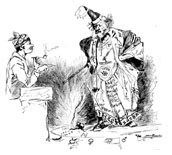
The Eucharistic Theology of Pro-Abortion Catholic Politicians
THE AMERICAN CHURCH’S GREATEST CRISIS
We are in an unprecedented moment in the history of the Catholic Church in America, a moment of significant spiritual crisis. The essence of what it means to be a practicing Catholic hangs in the balance. This crisis has gnawed at the Church since January 22, 1973, when William Brennan, a Catholic associate justice of the Supreme Court and the chief architect of Roe v. Wade, sided with the court’s majority in legalizing abortion on demand and doing so with complete ecclesial impunity. Since that day, with very few exceptions, Catholic politicians who support, advocate, and facilitate the killing of the unborn have stepped into the Communion line and received the Body and Blood of Our Lord, Jesus Christ.
This crisis has finally come to a head, due to the election of Joseph Biden as president of the United States. Biden presents himself as a devout Catholic, and a doting media magnifies his alleged piety. Together they have redefined what it means to be Catholic, namely, that one can claim the Catholic faith and yet support and protect a law that sends millions of innocent human beings to their deaths. Had Biden not gained the presidency, the American bishops could have continued to look the other way when it comes to the eucharistic incoherence of pro-abortion Catholic politicians. After all, nearly 50 years have passed without any serious pastoral directives from the episcopacy addressing this scandal, much less admonishments or penalties.
Biden, who facilitates legal abortion and supports so-called gay marriage (having officiated at two such ceremonies), is now the most visible example of American Catholicism. Thus, Biden’s presenting himself for Holy Communion is not an isolated diocesan problem; it is a national ecclesial problem, a crisis for the Church that many, if not most, bishops know they can no longer ignore.
Let us briefly review what the Church teaches on worthy reception of the Eucharist, as well as the Catholic politician’s duty to protect life. We may start with the much-ignored canon 915, which states, “Those who have been excommunicated or interdicted after the imposition or declaration of the penalty and others obstinately persevering in manifest grave sin are not to be admitted to Holy Communion.”
In June 2004 Cardinal Joseph Ratzinger, then-prefect of the Congregation for the Doctrine of the Faith (CDF), sent a memo to Theodore Cardinal McCarrick, then-archbishop of Washington, D.C., providing specific guidelines for denying the Eucharist to pro-abortion Catholic politicians. At the time, John Kerry, another Catholic who supports abortion, was running for U.S. president. Ratzinger’s memo states, “Regarding the grave sin of abortion or euthanasia, when a person’s formal cooperation becomes manifest (understood, in the case of a Catholic politician, as his consistently campaigning and voting for permissive abortion and euthanasia laws), his Pastor should meet with him, instructing him about the Church’s teaching, informing him that he is not to present himself for Holy Communion until he brings to an end the objective situation of sin, and warning him that he will otherwise be denied the Eucharist” (no. 5).
You May Also Enjoy
Research has uncovered a link between soap operas and lower fertility rates in Brazil, Mexico, and Kenya. In fact, some countries have "a history of using soap operas to cut fertility."
For Allen Tate, Caroline Gordon, and Walker Percy, neither tradition nor wealth-getting nor Protestantism answered the question of the meaning of existence. Their answer was in the Church.
Among the industrial nations of the West, only the U.S. has had no democratic socialist party of national significance, nor a party to speak for the labor movement.

